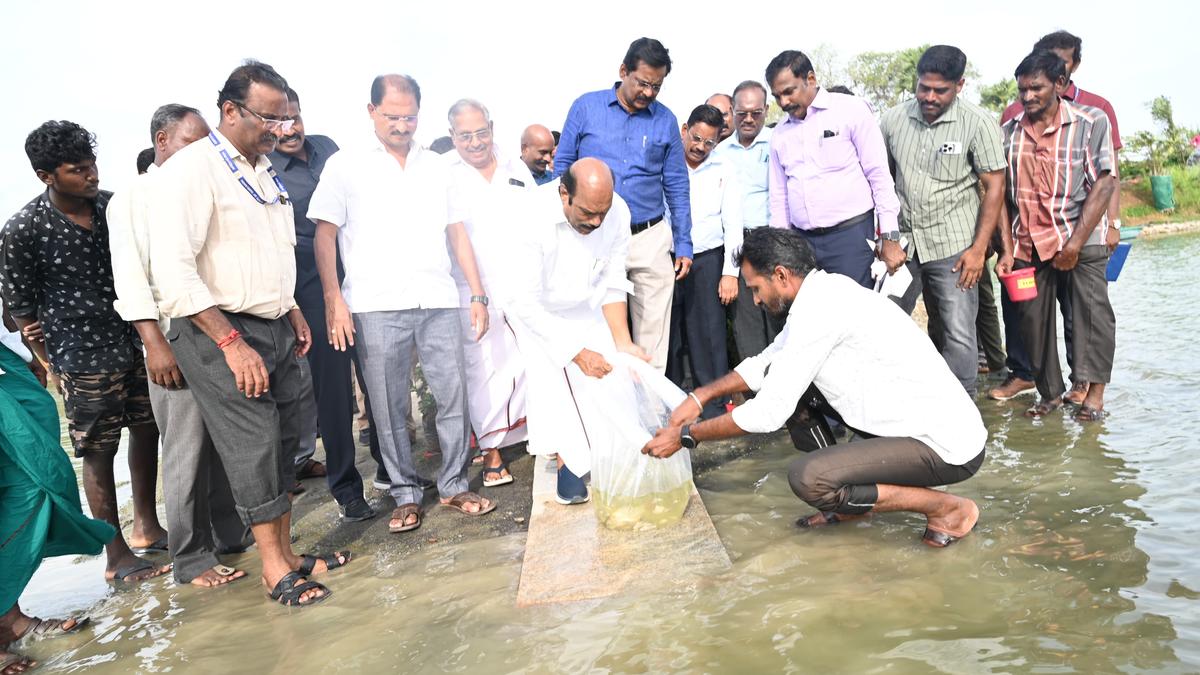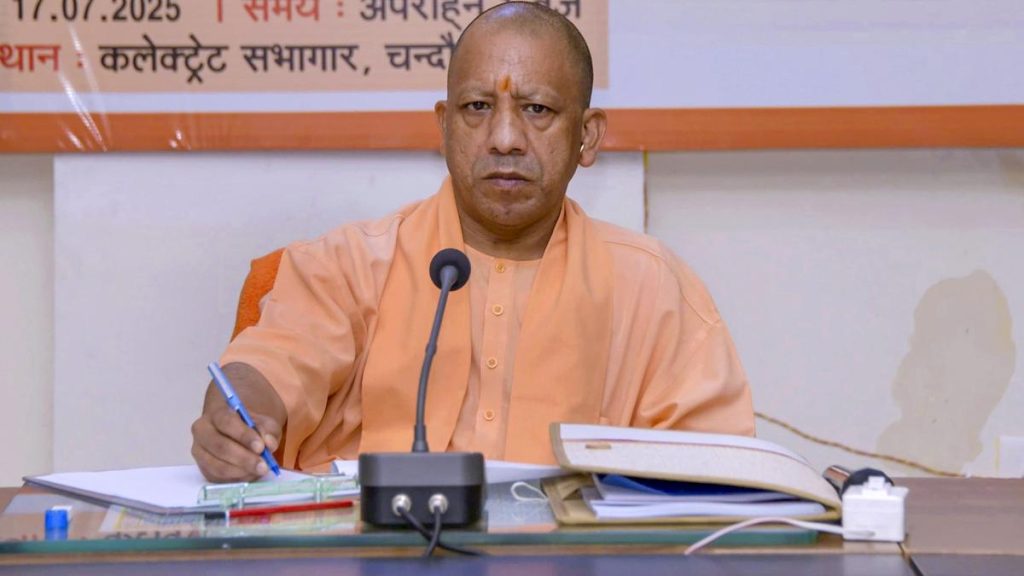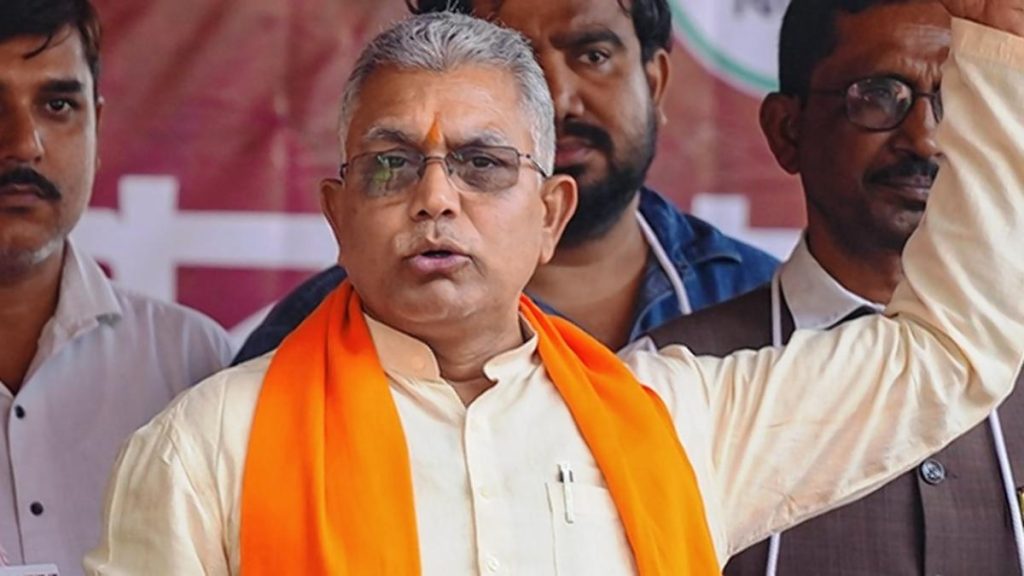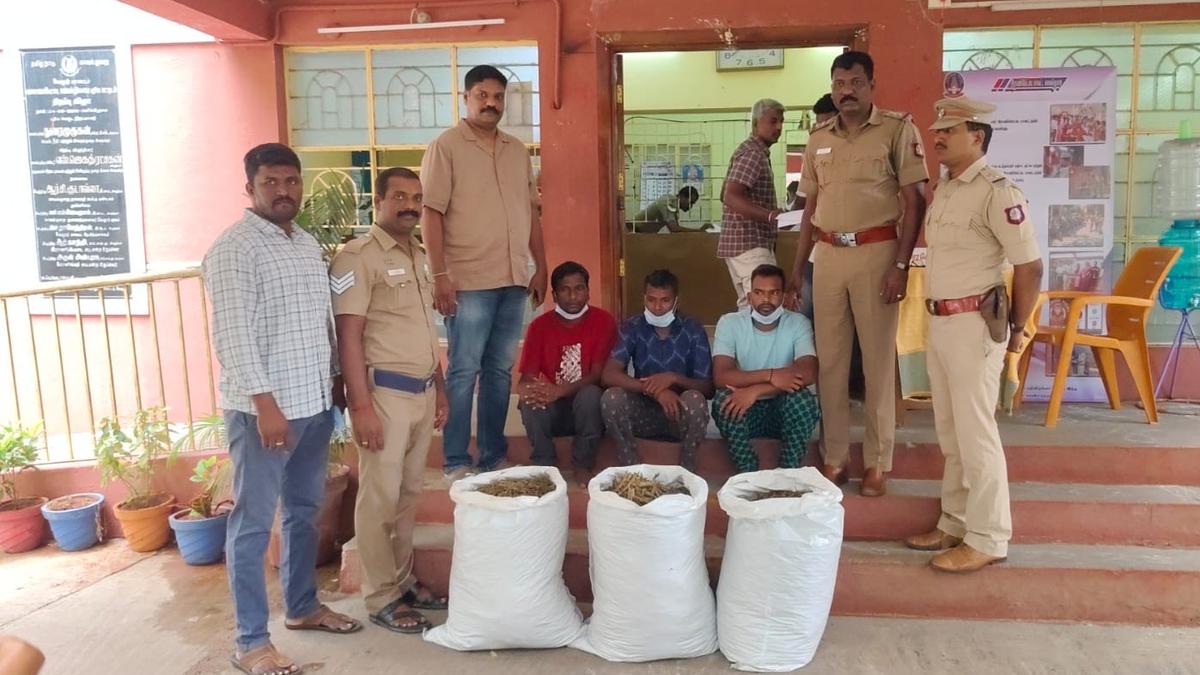Now Reading: Rain Boosts Fish Farming in Tiruvannamalai Irrigation Tank
-
01
Rain Boosts Fish Farming in Tiruvannamalai Irrigation Tank
Rain Boosts Fish Farming in Tiruvannamalai Irrigation Tank

Quick Summary
- Fish farming in the Melathikkan irrigation tank near Tiruvannamalai has been revived due to increased waterflow from recent rains.
- Minister for Public Works and Highways E.V. Velu, alongside Collector K. Tharpagaraj, released young fish into the tank on Wednesday as part of farming efforts supported by the Tamil Nadu fisheries Development Corporation (TNFDC).
- Farming is primarily carried out between May and August when weather conditions improve, water levels rise steadily, and oxygen retention is adequate.
- Local fishermen utilize Catla, Roya, and Mithila fish varieties for cultivation due to their fast growth rates and demand for local recipes like spicy curries.these fish can grow over 1 kg in three months post-release into tanks.
- Melathikkan tank follows norms with around 2,000 fish released per hectare to optimize growth; 60% of the total area of the tank is used for cultivation activities.
- Fishing operations are organized into units: 18 groups of two fishermen each aim to catch at least 500 kg daily during peak season (August). One-third of catches cater to local consumption; remainder goes to goverment-run stalls across Tamil nadu.
- Efforts help ensure employment opportunities for local skilled workers from nearby villages while deterring poaching.
Indian Opinion Analysis
The revival of fish farming operations at Melathikkan brings focus on enduring utilization of existing water resources in rural Tamil Nadu. The system integrates environmental management-leveraging monsoon effects-and socio-economic benefits such as providing steady jobs to local fishermen while addressing regional food demands through efficient aquaculture practices.
Such initiatives highlight an adaptable governance model where seasonal rainfall enhances livelihoods without heavy external infrastructure dependency-especially significant given india’s increasing focus on rural development policies promoting self-reliance and ecological balance. By engaging locals as stakeholders alongside strict monitoring by fisheries officials, poaching risks are mitigated effectively while boosting rural incomes sustainably.
this project exemplifies how state-supported initiatives can strengthen marginalized communities’ welfare when guided with clear norms aimed at equitable distribution within a regulated framework.
For more details: https://www.thehindu.com/

























